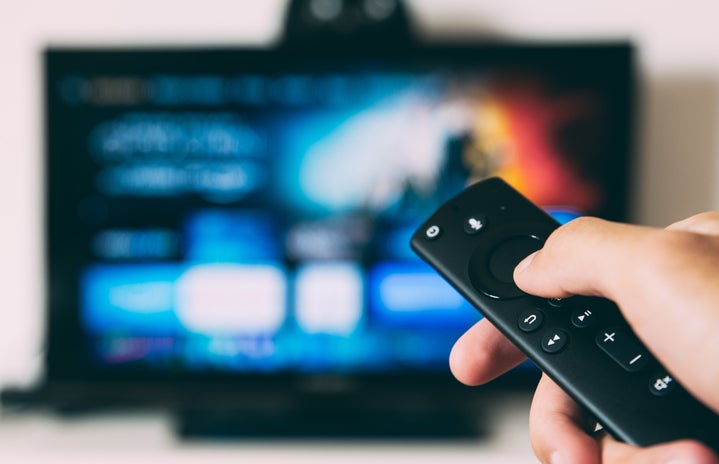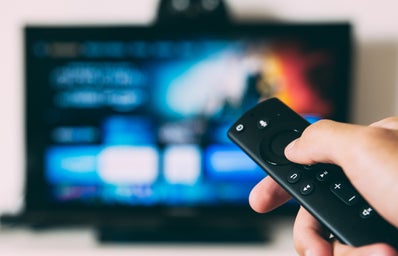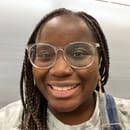I always think I’ve outgrown my adolescent tendency to hyperfixate on pieces of media. Then, something like Daisy Jones and the Six comes around and blows that assumption to bits.
I remember finally taking the bait and picking up author Taylor Jenkins Reid’s The Seven Husbands of Evelyn Hugo after seeing it everywhere—and this during a time before BookTok revolutionized the book publishing industry and turned recommendations into real marketing campaigns. I can be admittedly pretentious about books, especially as an aspiring writer, and the ones that I see endorsed by large numbers of people often leave me disappointed. Not so with Evelyn. The plot, the writing, the characters—I found all of it enthralling, even after a second pass at the audiobook years later. Long before I was done with my first listen, I put Reid’s 2019 novel Daisy Jones & the Six on hold, willing to wait for numerous weeks while other library users had it checked out.
Of all the words I could apply to Daisy, the one that sticks with me most, more than two years after I finished it, is inventive. The format, an oral history of the titular band and the personnel around them gathering in the present day to recount their 1970s heyday and sudden split, was unlike anything I had encountered at the time, no doubt aided by the rare full cast of audiobook narrators, one for each central character in the story. While some of the finer details have faded in the wake of the time that’s passed and the other books I’ve consumed in the interim, Daisy has always stayed at the forefront of my mind as a novel that I admired and even wanted to emulate.
When I heard there was going to be a screen adaptation, I didn’t get my hopes up, having been burned by some of my favorites getting stuck in development hell in the past. However, once I heard about the cast list and saw promotions on social media, I decided I wasn’t going to add it to my running mental list of shows I wanted to “check out—” I needed to binge the whole thing on the day it dropped. Turns out, Amazon Prime Video only debuted the first three episodes on the premiere date, so this was an impossible task, but for those three episodes, I was enraptured.
Part of it was the anticipation of seeing scenes I recognized on the screen, but I think that even if I had come to the series not even knowing there was a book that came first, I would have felt the same way. I’m a sucker for a good exploration of characters’ backstories just as much as I’m one for a dynamic ensemble cast, and the first three episodes provided these in spades. Daisy, portrayed by the magnetic Riley Keough, doesn’t even meet the rest of her future bandmates until well into episode three, having existed on separate planes until chance, luck, and opportunity brought them together. Getting to spend one-on-one time with each set of characters makes for more emotional connection with them and more excitement when their worlds collide.
I haven’t even mentioned the show’s music, much of which was released as a bona fide album on streaming services the same day the show premiered. Music is the only thing I’m as passionate and picky about as I am with books, and I have listened to this album probably once a day since I discovered it. (If that sounds like hyperbole, my Spotify history will assure you it is not.) I had no idea what to expect when I heard about the album, and I admit that my initial assumption was that it was going to be more of a cash grab than a genuine attempt at creating art. I’ve never been happier to be proven wrong. Lead songwriter Blake Mills and his collaborators, who include Phoebe Bridgers, Marcus Mumford, and Maroon 5’s James Valentine, were able to capture the sound of the 1970s while avoiding sounding like a knockoff of any particular group, which was a necessity in the wake of the novel’s long-discussed parallels to Fleetwood Mac. Outside of the songwriting, the magic of the album comes from the fact that while production was paused during the pandemic, the cast took time to actually learn the music, which involved hours of vocal and instrumental lessons for lead singers Keough and Sam Claflin, guitarist Will Harrison, bassist Joshua Whitehouse, keyboardist Suki Waterhouse, and drummer Sebastian Chacon. This means that they are actually playing when you see them performing on screen, and every note played or sung on the album recording is really from them. That level of authenticity makes this more than just a good album—it makes it a distinctly innovative album, just like the novel that started it all.
Maybe it’s my inner combination band-theatre-creative writing club kid( who has gone dormant at times during college but never truly died,) seeing her passions executed so well that’s led to me being so enchanted with the series. Maybe it’s the fact that the show and the music are (excuse the pun) a prime example of how to do a book-to-screen adaptation that respects the source material while taking on a fresh perspective and allowing the expert creatives involved to handle the difference in medium as they see fit. Regardless, I’m ready and willing to receive more DJATS content as soon as possible—if the showrunners are willing to expand beyond the timeframe set by the novel.


